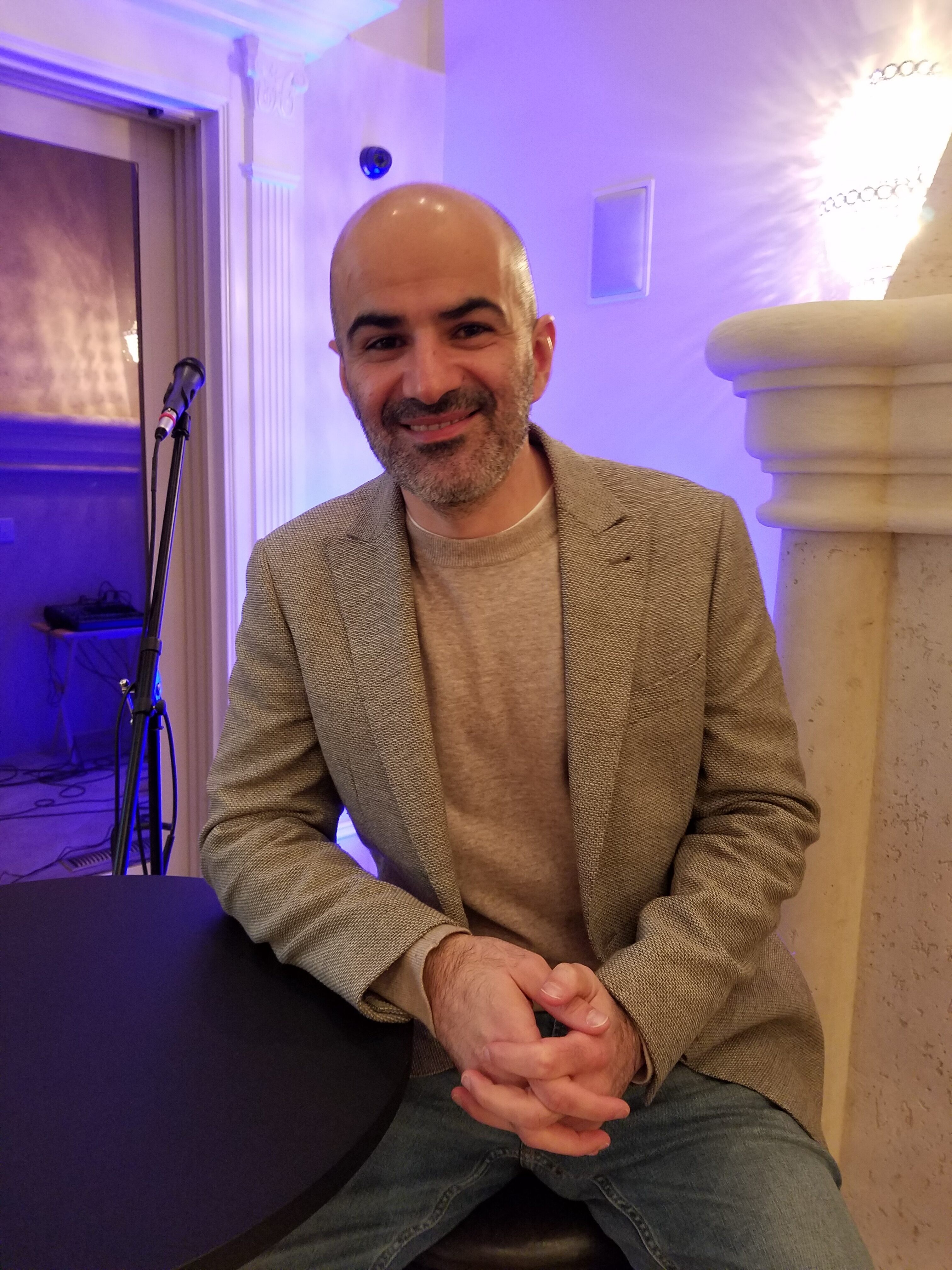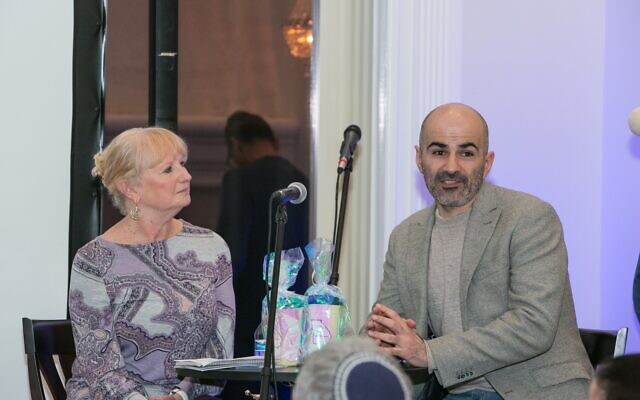Kurds See Israel as Model
Kurdish-American Butan Amedi told supporters of the Israeli American Council that the majority of Kurds believe Israel has the right to exist.
Kurdish-American Butan Amedi told supporters of the Israeli American Council that the majority of Kurds believe Israel has the right to exist. “Kurds don’t hate Jews,” he said. “The majority are pro-America and pro-West. Americans should know there aren’t many pro-American people in the Middle East – only Kurds and Israel.”
Amedi, an Atlanta engineer, spoke at IAC’s first fundraising gala Jan. 20 before about 50 people gathered to hear him, musician Hemi Rudner and the achievements of the regional office of the IAC after completing its first two years here.
Nationally, the organization is 11 years old, said Shaked Angel, regional director for greater Atlanta. IAC was designed to create a community of both Israelis and Americans who support Israel and connect the younger generation to their Jewish identity.
Partly because Kurds support Israel, Amedi believes that Israelis and Americans should support the Kurds, he told the crowd in a Q&A this writer led. “This is the largest ethnic group in the world without a country of its own,” said Amedi, who is fluent in Kurdish, Arabic and English, and is currently learning Hebrew as well.
According to Amedi, the estimated 20 million Kurds – who mostly live in Iraq, Syria, Iran and Turkey – see Israel as a model of an ethnic group that has achieved its goal for a national homeland. He sees other parallels between Jews and Kurds. “Both have been persecuted throughout history,” he said.

Amedi grew up in the Kurdish region of Iraq while Saddam Hussein was still in power. When the Americans created a no-fly zone, the Kurds were able to establish their own governing bodies. Before that, though, he vividly recalls one day in his seventh grade history class. At the time, his only awareness of Israel was what he saw and heard from Arabic television about how Israelis were killing Palestinians and expelling them from their land.
“One day, I recall we were learning about the history of Islam in class, and the teacher was talking about Jerusalem. He set aside the book and said, ‘no matter what we hear about Muslims living in Jerusalem before the Jews, the truth is Jews were there first.’ I was shocked and went home to ask my father about what the teacher said, and my father told me that that was correct. My view about Israel began to be reshaped.”
In the early 1990s, during the first intifada and after moving with his family to Atlanta, Amedi noticed on TV that when young Palestinians threw rocks at Israeli soldiers, they only fired back with tear gas, not bullets as he would have expected from his own experience in Iraq.
His change in perspective was further reinforced about a year ago when Amedi visited Israel for a week with a Kurdish friend who now lives in Germany. Upon landing at Ben Gurion Airport, Amedi was pulled aside for further questioning, but he said the security people were all very polite and he was soon on his way. “I felt at home in Israel,” he said.
In fact, while shopping at Mahane Yehuda market in Jerusalem, he found Israeli Kurds from his hometown. One man who lives in Ma’ale Adumim “even remembered my grandfather.” Amedi noted that like Israel, Kurdistan at one point included Muslim, Christian and Jewish Kurds; the Jews have since left the region, mostly for Israel.
Amedi was impressed that street signs in Israel were in Arabic as well as Hebrew but noted that Iraq also now recognizes the Kurdish language as well as Arabic. Recently, Amedi published a column in The Jerusalem Post criticizing Turkish President Recep Tayyip Erdogan for accusing Israel of denying human rights to Palestinians. “Mr. Erdogan needs to put his own house in order before criticizing others,” he wrote. In fact, Amedi pointed out, Kurds are more persecuted in Turkey than anywhere else in the world.
At the IAC program, Amedi talked about how the current American administration pulled its troops from the border of Iraq and Turkey a few months ago and “green-lighted” the latter’s incursion against the Kurds in Iraq. “Abandoning the Kurds will smear the American image in the Middle East,” he argued, “and will rid America of potentially a great ally in the region.”
A graduate of the Georgia Institute of Technology, Amedi works as an engineer and lives with his wife and two pre-teen children in the Atlanta area, where he says the Kurdish population numbers about 500. Amedi said he would love to move to Israel and live as a minority member there. He just has to convince his wife.




comments